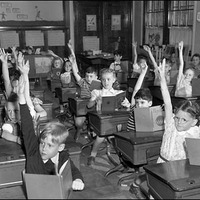Have you ever wondered how important positive expectations are in the workplace? Take a moment to think about when, and under what conditions, you best perform…
The Rosenthal Effect refers to a phenomenon that many of us might understand intuitively, but can't fathom the sheer amount of power and achievement it can harness. It emphatically shows that the greater the expectation placed upon people, the better they perform. The Rosenthal Effect is in essence, a self-fulfilling prophecy whereby people with poor expectations internalize their negative label, and perform poorly…while those with positive self-imposed labels, exceed their own apparent abilities. 
In the late 1960's, Robert Rosenthal showed that if teachers were led to expect enhanced performance from a select group of children, these children were able to rise above previously predicted achievement levels. What he (and others who came after him) has proven, is that reality can be influenced by the expectations of others…And it goes both ways: Detrimental effects come from negative expectations just as strongly as achievement results from positive expectations.
What biases do you bring to the table with new agent candidates? Are you one of those who believe that everyone has a certain ceiling of performance that they will never exceed? Do you refrain from holding people to high expectations because it feels mean or unfair? "After all, this person couldn't pull it off, so it would be cruel to expect that they will?" This kind of thinking, Rosenthal and others have termed the "observer-expectancy effect," where a person forms unconscious, biased expectations, based on extremely limited, and usually irrelevant information…and creates a downward spiraling, self-fulfilling prophecy as a result.
The Rosenthal Effect is confirmed by Jane Elliot's blue-eyed versus brown-eyed discrimination exercise. In this experiment, a group of third graders were told that they were going to take turns looking down upon one half of the classroom, as if they were inferior people. They used something completely random to determine who would be inferior/superior – eye color. The first day of the experiment, one group was given preference and regarded as "superior" because of their eye color, while the other group was made to feel inferior in intelligence and learning ability. On the second day of the experiment, the groups were completely reversed; those who had been treated as lower-than, were regarded as superior, and those who were treated as superior were treated as dummies.
The teacher continued to hold classroom structure and assignments as if the "experiment" wasn't occurring. In keeping with the classroom routine, spelling tests were administered on both days. The results strongly confirm the Rosenthal effect: The students scored very low on the day they were "inferior," and very high on the day they were considered "superior."
It's time to recalibrate the way you approach everyone you are responsible for. Check your internal biases, reset your expectations, and watch people flourish.
Editor's Note: This article was written by Dr. David Mashburn. Dave is a Clinical and Consulting Psychologist, a Partner at Tidemark, Inc. and a regular contributor to WorkPuzzle. Comments or questions are welcome. If you're an email subscriber, reply to this WorkPuzzle email. If you read the blog directly from the web, you can click the "comments" link below.

